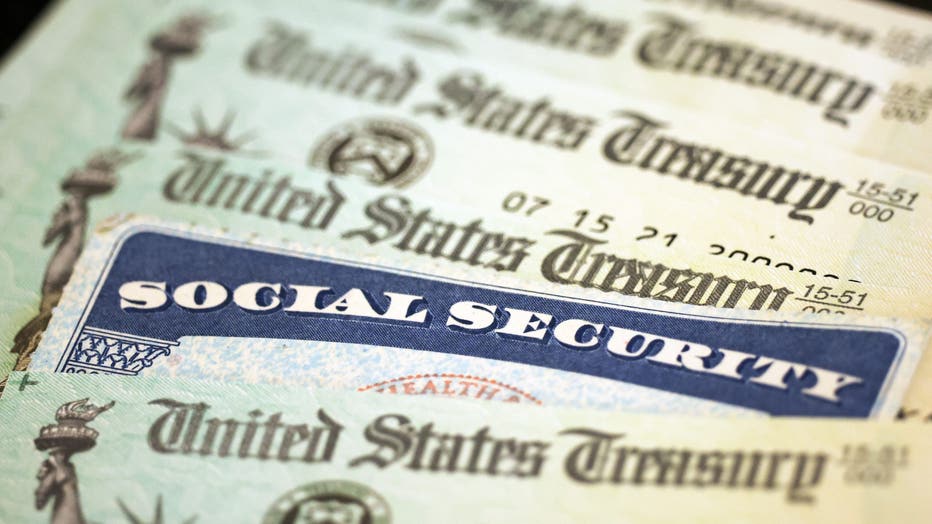Social Security Fairness Act signed: What to know

Social security benefits to rise 2.5% in 2025
Social Security recipients will receive a 2.5% increase in their monthly checks in 2025. Analysts had predicted a 2.5% bump for 2025, which is smaller than increases in the previous two years and reflects moderating inflation. Recipients received a 3.2% increase in their benefits in 2024, after a historically large 8.7% benefit increase in 2023, brought on by record 40-year-high inflation.
President Joe Biden signed Sunday a bill that will boost Social Security for nearly 3 million people.
The signing of the Social Security Fairness Act repeals two stipulations that limited Social Security benefits for some recipients.
Here’s what to know about the act, and who it affects:
What is the Social Security Fairness Act?

FILE - In this photo illustration, a Social Security card sits alongside checks from the U.S. Treasury on October 14, 2021 in Washington, DC. (Photo illustration by Kevin Dietsch/Getty Images)
The measure would repeal provisions that reduce certain Social Security benefits for individuals who receive other benefits, such as a pension from a state or local government, according to the bill summary.
Specifically, it would repeal the Windfall Elimination Provision (WEP) and the Government Pension Offset (GPO).
The WEP can reduce Social Security benefits for individuals who worked for an employer that didn’t withhold Social Security taxes from their salary and now receive a retirement or disability pension. Such an employer may be a government agency or an employer in another country, according to the Social Security Administration.
The bill summary says the GPO "in various instances reduces Social Security benefits for spouses, widows, and widowers who also receive government pensions of their own."
The bill would repeal those provisions and reinstate full Social Security benefits.
RELATED: IRS increases 401(k), other 2025 retirement plan contribution limits
"The bill I'm signing today is about a simple proposition: Americans who have worked hard all their life to earn an honest living should be able to retire with economic security and dignity — that's the entire purpose of the Social Security system," Biden said during a signing ceremony in the White House East Room.
"This is a big deal," he said.
Social Security boost
The Social Security Fairness Act will boost Social Security payments for about 3 million current and former public employees.
These people receive pensions from their time as teachers, firefighters, police officers and in other public service jobs.
The change is to payments from January 2024 and beyond, meaning the Social Security Administration would owe back-dated payments.
It's not immediately clear how this will happen or whether people affected will have to take any action.
The Social Security Administration said it is evaluating how to implement the act once it’s signed into law, and will provide more information.
RELATED: Social Security January payment schedule: Here’s when beneficiaries will get their checks
Criticism of the bill
Advocates say the Social Security Fairness Act rights a decades-old disparity, but criticism of the bill is that it will also put strain on Social Security Trust Funds, which face a looming insolvency crisis.
The future of Social Security, which pays out to about 72.5 million people currently, has become a top political issue.
The policy changes from the new law will heap more administrative work on the Social Security Administration, which is already at its lowest staffing level in decades.
The annual Social Security and Medicare trustees report released last May said the program’s trust fund will be unable to pay full benefits beginning in 2035. The new law will hasten the program’s insolvency date by about half a year.
The Source: Information in this article was taken from the White House signing ceremony of H.R. 82, the Social Security Administration’s official website and The Associated Press. This story was reported from Detroit. Kelly Hayes contributed.

